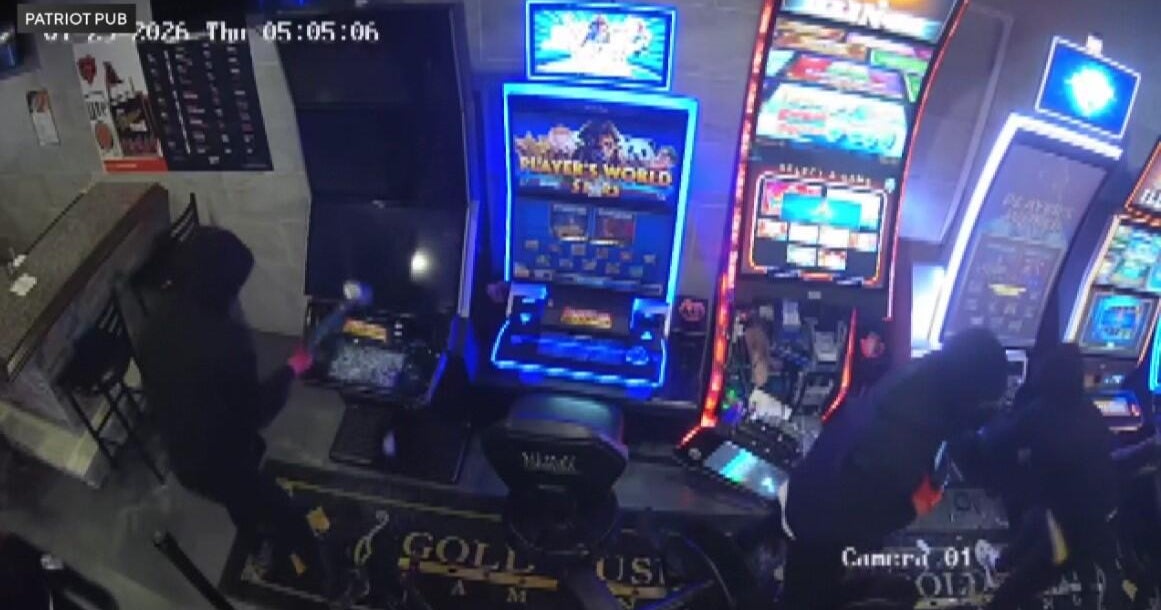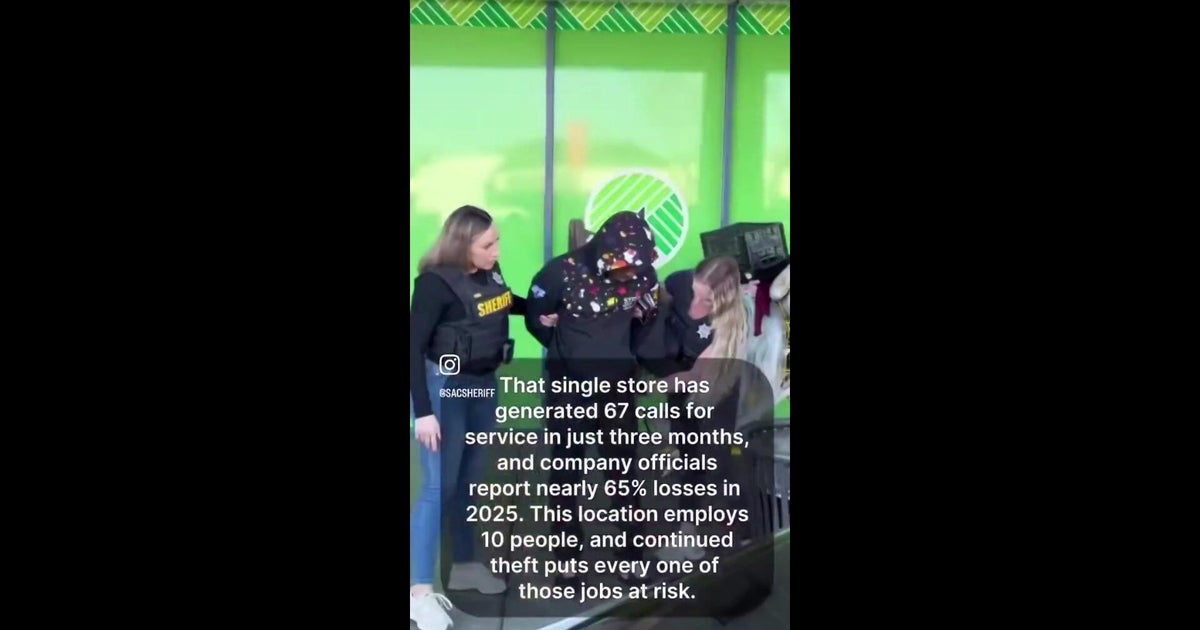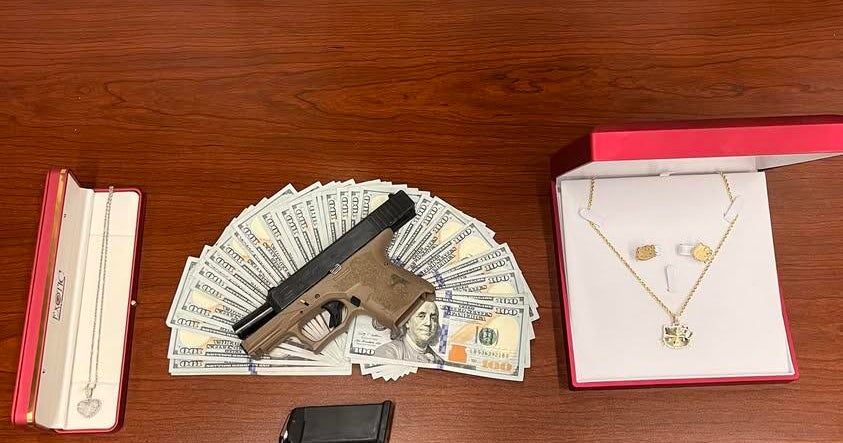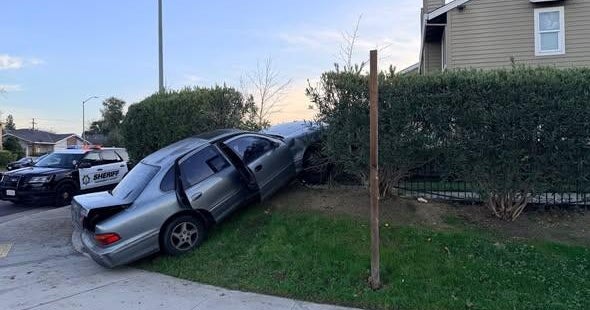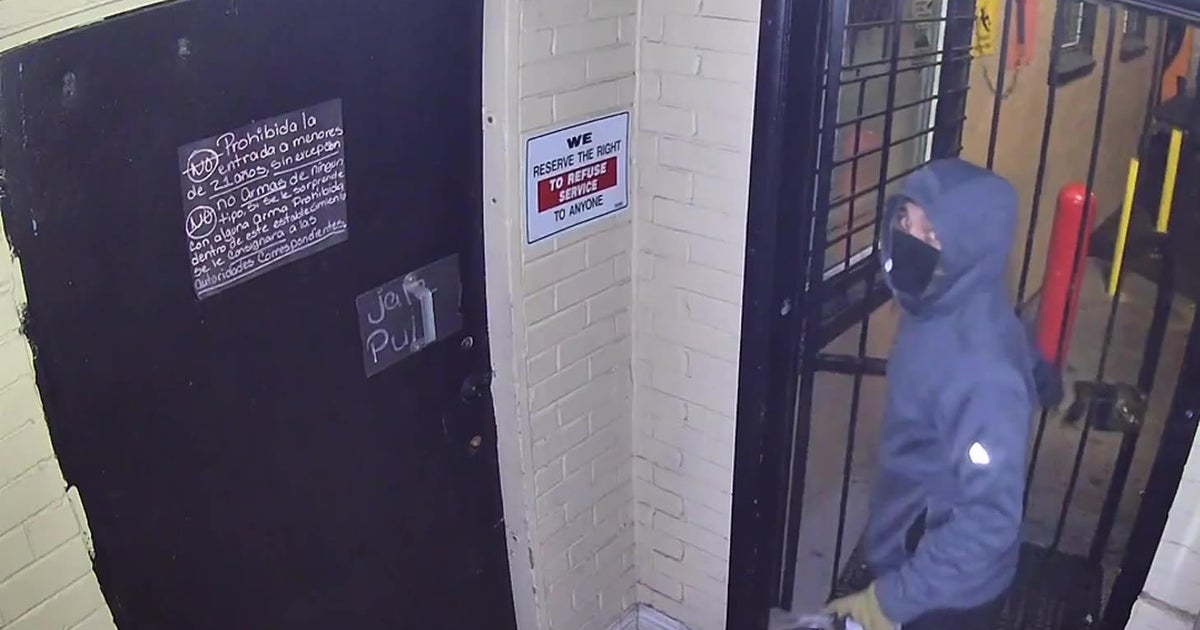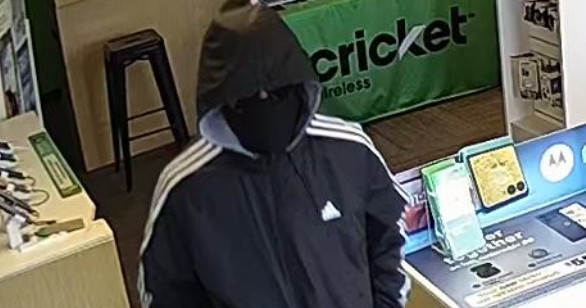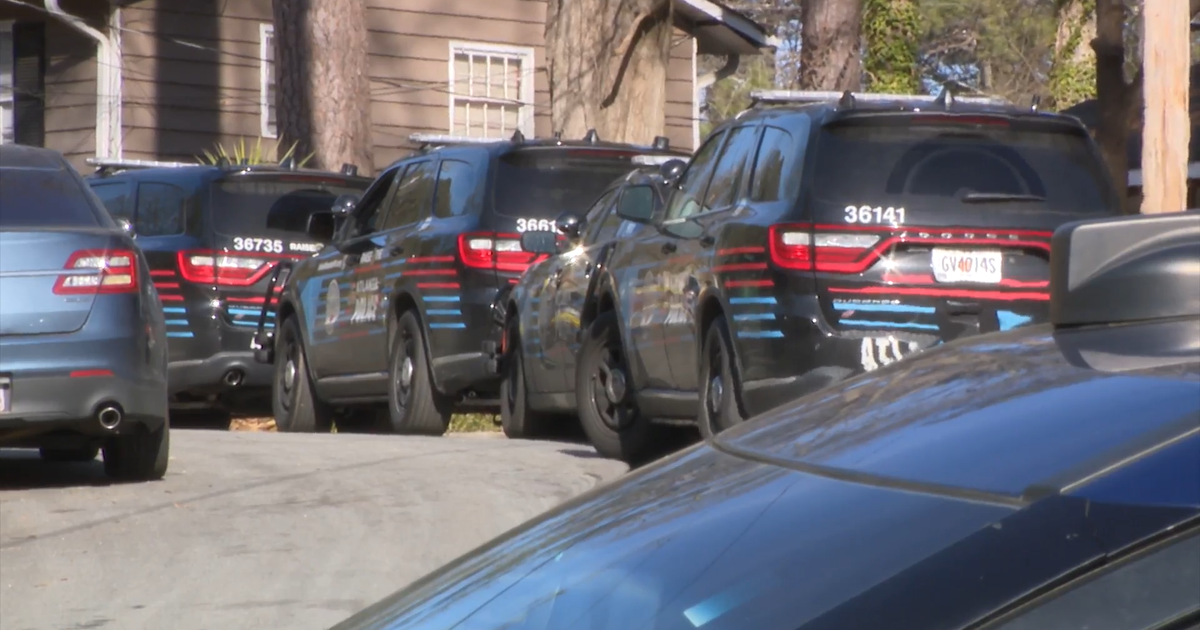Highway Hijackers Target Cargo
It's become the new Miami vice. Cocaine Cowboys turned to Highway Hijackers, and it is now the costliest crime in America.
This crime means more in losses in America than every robbery, larceny, grand theft and burglary combined, but few people have ever heard about it.
The CBS4 I-Team uncovered what some cops call America's next big Homeland Security crisis.
Investigative reporter Stephen Stock exposed law enforcement's biggest fear, that while these thieves steal us blind, they're also funding terrorism with some of the stolen loot.
Marion County Sheriff Ed Dean calls it nothing short of war. "There is a war going on," Sheriff Dean told the I-Team. "The war is being waged against Amercia by the bad guys."
The CBS4 I-Team discovered that Interstates and the Turnpike all over Florida have become the front lines in that war--the war to prevent cargo theft.
It's a crime that's been gaining popularity among the underworld since the 1990's.
"It's a homeland security issue, said Captain Tommy Bibb of the Central Florida Cargo Theft Task force. "It's an economic issue."
But only now is cargo theft seen as a serious crime and getting national attention from law enforcement.
The CBS 4 I-Team spent several days and nights riding along with cargo theft task forces set up in Central and South Florida. The task forces were set up in an attempt to reduce this growing crime.
"If he didn't know that would give us suspicion that maybe he just took this trailer," Capt. Bibb said while pointing to a suspicious tractor-trailer that the team had just pulled over.
"We'll check and see if those trailers are loaded," Capt. Bibb said.
In the last year, $30 million worth of stolen merchandise was recovered in Miami-Dade County alone.
And investigators believe that two or even three times that amount is being stolen and not getting caught. It's getting through despite law enforcement's best efforts to stop the crime.
In fact, Miami-Dade police were among the first in the country to realize the seriousness and breadth of this crime.
"In 1993, South Florida started suffering huge losses in cargo thefts," said Lieutenant Twan Uptgrow of the Miami-Dade TOMCATS (the cargo theft task group located in South Florida.) "So we got together and former 'Operation Storm Front' a temporary operation which lasted six months and ended with several arrests related to cargo theft. In fact because of 'Operation Storm Front' we indicted 74 individuals on crimes directly relating to cargo theft."
Uptgrow continued, "109 more subjects were charged with related crimes including on state crimes. We recovered 12 million dollars worth of merchandise."
But Uptgrow said that soon after that operation ended, more cargo thieves filled the void left by the arrests from "Operation Storm Front."
That's why, in early 1994, Miami-Dade police formed the permanent task force and named it TOMCATS. TOMCATS is now a fixture at Miami-Dade's police headquarters in Doral. It consists of about a dozen detectives, a specialized crew of investigators whose only job is to fight cargo theft.
The original TOMCATS included detectives from Miami-Dade's police department, US Customs, and agents from the FBI. Officials with Calvin Klein helped start the TOMCATS because the company was concerned by the size of cargo thefts happening, especially in South Florida.
The TOMCATS now also include representatives from FDLE, Florida's Department of Transportation and Florida's Highway Patrol.
And they are after organized criminals. "Cargo crimes are an organized crime. You have organized individuals involved in cargo crimes," Lt. Twan Uptgrow, the leader of Miami-Dade TOMCATS's told the I-Team.
There are now other cargo theft task forces in other parts of the state that are modeled after the TOMCATS. One of those task forces is the Central Florida Cargo Theft Task Force based in Ocala, Florida. It was the brainchild of Sheriff Ed Dean and is now headed by Captain Tommy Bibb. Sumter County's Sheriff's office also provides support crews for this task force along with Florida's DOT and Florida's Highway Patrol.
"Most people don't even know what cargo theft is," Captain Bibb said while cruising up I-75 looking for stolen tractor-trailers.
The crime and criminals are so prevalent it has happened right before surveillance cameras as undercover officers watched.
The undercover video shows cargo theft suspects hooking up their own rigs to the trailers that sit unguarded in parking lots all over the country. The thieves then simply drive off taking the tractor-trailers loaded with merchandise right off the street.
"It probably takes only a minute and a half to back up to a semi-trailer take it and you're gone," Captain Bibb said, while looking at just such an abandoned trailer at a truck stop.
"Mostly it's these trailers that are left unattended with no locking devices on it just gives the cargo thieves a big opportunity," Bibb said.
The CBS4 I-Team obtained pictures that show how easy it is to steal big money when thieves take these trailers.
The pictures show that Miami-Dade cops caught up with the thieves 2 weeks ago only because the thieves got a hand truck stuck under the cargo--forcing it to stick out of the back of the truck going down the road. If that hadn't happened, the cargo thieves would have successfully stolen millions of dollars worth of cargo in an instant because the truck's load was microchips worth more than $17 million.
"It (cargo crime) is huge. Not only are some of these loads worth millions of dollars, they are split up and they're sold off very quickly," FDLE's Scott Friedman said.
More surveillance video obtained by the CBS4 I-Team shows cargo thieves operating in broad daylight.
"They come in with a stolen load and blend right in," Captain Tommy Bibb said, describing how easy it is to steal a tractor-trailer.
"They pull it inside the warehouse off-load it and then they take the trailer out someplace and dump it," Capt. Bibb said.
The I-Team discovered these crimes are the result of organized gangs. These gangs have relocated to South Florida from Cuba or elsewhere South America. In fact, the vast majority of the organized cargo theft operations are based here in South Florida. But the thieves are helping themselves to hundreds of millions of dollars worth of cargo up and down the eastern seaboard of the United States.
"Very easy pickings," Cpt. Bibb said describing the trailers left unattended at truck stops from New Jersey to Atlanta, Dallas to Nashville and everywhere in between.
Almost all of the stolen cargo is taken either directly from warehouses or driven away in tractor-trailers where the cargo is already loaded and meant for a retail store or distributor.
"They're just very easy to steal," said Mark Peavy of the Marion County Sheriff's Office. Peavy shook his head at the ease of theft even while he walked around just such a potential target-an unattended trailer left at a truck stop. Peavy was trying to find a contact phone number on it to call to have the trailer towed to a secure location.
Inside these trailers, the thieves steal everything from food, to jewelry, cosmetics to clothing, high-end electronics to computer microchips.
They even steal prescription drugs. In fact, that has become the new "craze" among cargo thieves purposely finding and stealing tractor-trailers filled with prescription drugs.
"It's big business big industry," the Miami-Dade's TOMCATS Lt. Twan Uptgrow said. "You can have a load of pharmaceuticals, a $30 million load of pharmaceuticals in one truck. You're talking about high profit low risk (for those who would steal it.)"
Marion County Sheriff Ed Dean put the problem succinctly. "These are organized thugs that are stealing America blind," Sheriff Dean said.
"It's more of a hassle to go in and buy a soda then it is to steal this truck," Capt. Bibb said while standing behind yet another unattended tractor-trailer his task force discovered sitting in a truck stop.
"You have somebody who can steal a million dollar load and they know that in two days they'll probably get time served and case closed and they'll be back doing the same thing again," Lt. Uptgrow said.
Stephen Stock asked the TOMCATS leader incredulously, "Stealing another million dollars?"
Lt. Uptgrow replied, "Stealing another million dollars."
Though there are no hard numbers because until this year cargo theft wasn't even tracked by the law enforcement statistics, the FBI estimates that cargo theft costs America between $10 and $30 billion a year. Break that down and you get just about $100 stolen every year for every man, woman and child in the United States.
"It could be more. It could be a lot more," said the FBI's Kenneth Kaiser.
Kaiser is Assistant Director of the FBI's Criminal Investigative Division in Washington, D.C. and he sat down to talk with the I-Team's Stephen Stock about this problem.
"I don't think the general public knows how many tractor-trailers are stolen how much money is going out the back door it affects everybody," Kaiser said.
"Most of it heads down into Southeast Florida, Hialeah and Miami," Capt. Bibb said.
And years of data reviewed by the I-Team show this is true.
In fact, South Florida has become the base for much of this organized crime.
Investigators have tracked millions of dollars in stolen merchandise that has been stolen elsewhere, driven to South Florida then it was shipped from Miami to Venezuela, Costa Rica, Colombia, Argentina, Brazil, the Dominican Republic and Paraguay.
"People don't realize the threat we have to our American economy through this cargo theft," Marion County Sheriff Ed Dean said. "And it will continue and it will get worse and it will get more violent."
The CBS4 I-Team has also discovered a new, troubling turn in the battle to stop cargo theft.
It is a development that could jeopardize Homeland Security.
For the first time--the I-Team has learned--investigators have tied some of the millions stolen off our streets to those who would do us harm.
"We have documented sources where people who are buying the stolen merchandise have ties to terrorist countries and terrorist nations," Lt. Twan Uptgrow of Miami-Dade TOMCATS told the I-Team.
And the cops fighting this crime say they need federal help. And now.
They're pressing local congressional leaders to hold hearings on Capitol Hill and to get federal money to fight what they say has become a major Homeland Security issue.
And the CBS4 I-Team has already gotten some action on that front.
After the I-Team contacted several Congressmen and women from South Florida, staff members from Representatives Kendrick Meek and Mario Diaz-Balart met with the TOMCATS and Marion County Cargo specialists. They discussed potentially getting federal funding as well as holding Congressional hearings in an effort to stop this growing crime.
(© MMX, CBS Broadcasting Inc. All Rights Reserved.)
